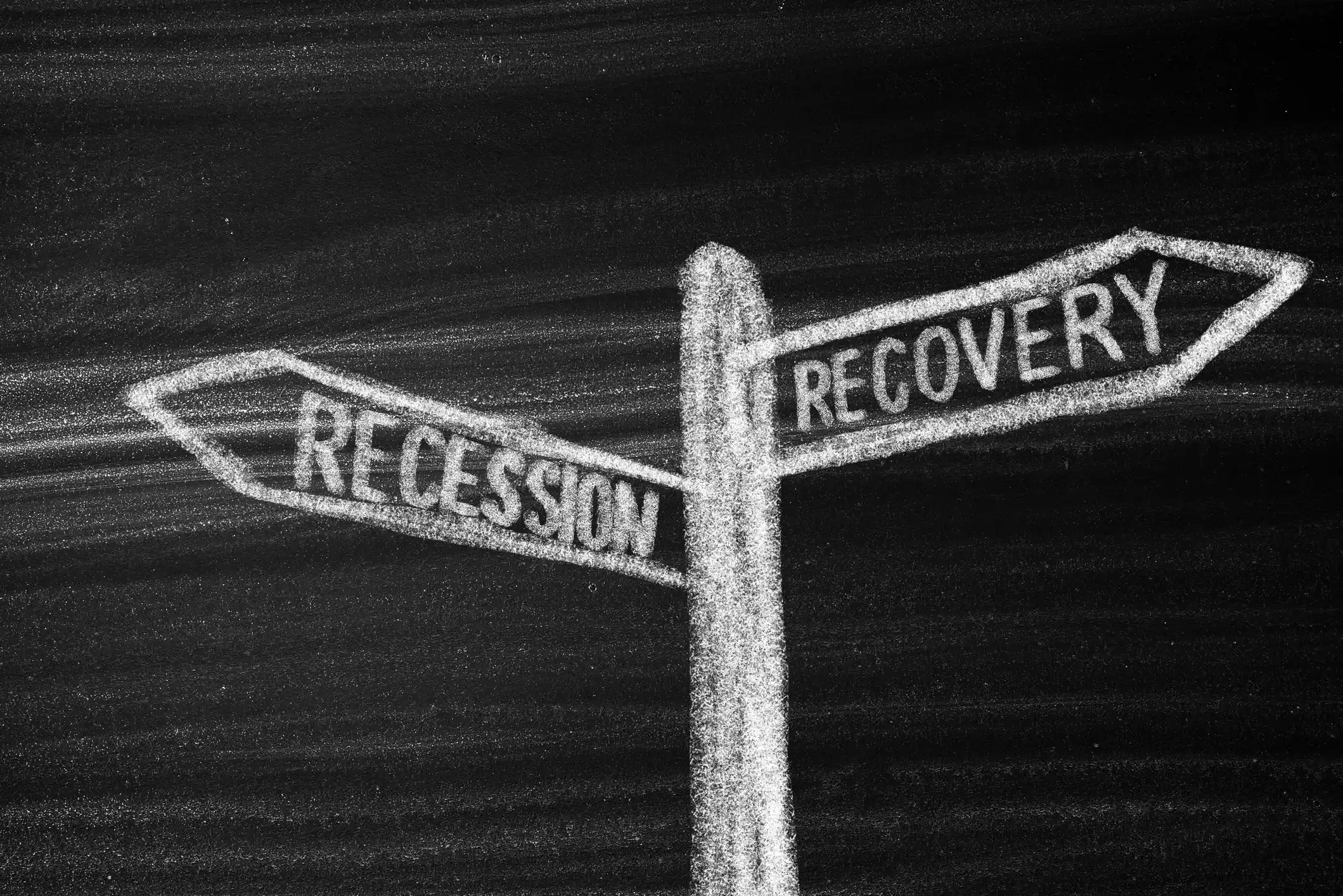Recession averted? Not so fast, says top economist
August 17, 2023

It wasn’t long ago that recession seemed all but certain for the US economy. Now, the economic picture is more complicated. Has recession been averted, or is there more to the story?
Prices and output are the fundamental pieces of the macroeconomic puzzle. What goods or services are being provided, and at what rate? The consumer price index (CPI) report seeks to answer the “price” portion of this question, and it is also the most commonly watched measure of inflation. The CPI has recently settled at around 3%, marking a dramatic fall from the record high of 9.1% last June.
A subset of the CPI, “core inflation” removes volatile energy and food pricing from the equation, offering a more accurate view of true underlying inflation. This too has fallen dramatically—down to 4.7% after peaking at 6.5% last March. With both the CPI and core inflation continuing to fall, what is behind the dramatic drop in inflation?
“This is largely because of the Federal Reserve’s actions of raising interest rates to slow the economy and cool inflation,” explains Dan North, Senior Economist at Allianz Trade North America. “We’ve made a lot of headway, and we’re getting down toward the 2% target that the Federal Reserve wants.”
With the rate of inflation slowing, is it too soon to rule out a recession? Get the full story in the latest episode of the Stay In Your Lane Podcast.
It typically takes three to five fiscal quarters for the effects of monetary policy changes to be felt. The Fed’s first rate hike came in March of 2022, meaning the effects are fully in play in today’s economy. The same can be said for subsequent rate hikes that were introduced though September of 2022. On the other hand, the effects of further rate hikes that took place late in 2022 and through the beginning of 2023 have not yet made an impact. This suggests that inflation will continue to fall thanks to successful maneuvering from the fed.
Rate hikes take aim at inflation by directly influencing the “price” side of the economic equation, but the output side of the economy is also affected. Some would say that rate hikes have caused damage to the economy at large, with the housing market, manufacturing, and consumer spending all on the downturn. These indicators of weakness in the economy suggest that the potential for recession remains high.
“We expect to see the economy continue to slow along with prices and inflation,” says North. “We talked about having a recession of the second or third quarter [of 2023]. That’s been pushed back a little bit.”
Because recession cannot be ruled out, a slow end to the year is likely from an economic standpoint. North believes that a negative fourth quarter is likely to end 2023, followed by near-zero percent growth in the beginning of 2024. This somewhat milder forecast still leaves the door open for recession-like conditions, even if their effects are less pronounced than previously predicted.
If outright recession is uncertain, the possibility for economic downturn in some form remains high. What does recovery look like as we begin to move out of this downward trend? North predicts that healing the economy will take time.
“It’s going to remain difficult for consumers to spend, and that’s 70% of the economy,” he says. “The fact that we are still going to have high interest rates and consumers with less [money] to spend, it makes you think that we’re definitely going to see a slower recovery.”
In times of economic slowdown, the fed typically cuts interest rates. This move is unlikely to come with any speed given current economic conditions. With so much recent inflation, the fed will want to be certain that the problem is solved before considering a rate reduction.
Transportation companies are being hit especially hard by ongoing economic challenges. Companies that specialize in the transport of refrigerated and frozen food, produce, and other food items are particularly vulnerable to volatile conditions not measured by core inflation. With interest rates up and revenue down, many organizations have become what North calls a “zombie company.”
“A zombie firm has borrowed a lot of money, and maybe things didn’t turn out so great,” North explains. “Now, all the profits they make go toward servicing the debt. They can’t grow, they can’t reduce the principal. They’re the walking dead, paying the interest.”
If you are feeling the effects of market volatility and economic downturn, you’re not alone. In these times, it’s important to have partners in your corner that you can trust to help see you through whatever the market can throw at you. For reliable and cost-effective 3PL solutions, trust the experts at Triple T Transport. Contact us today to learn more about our wide range of transportation services and receive a quote.














